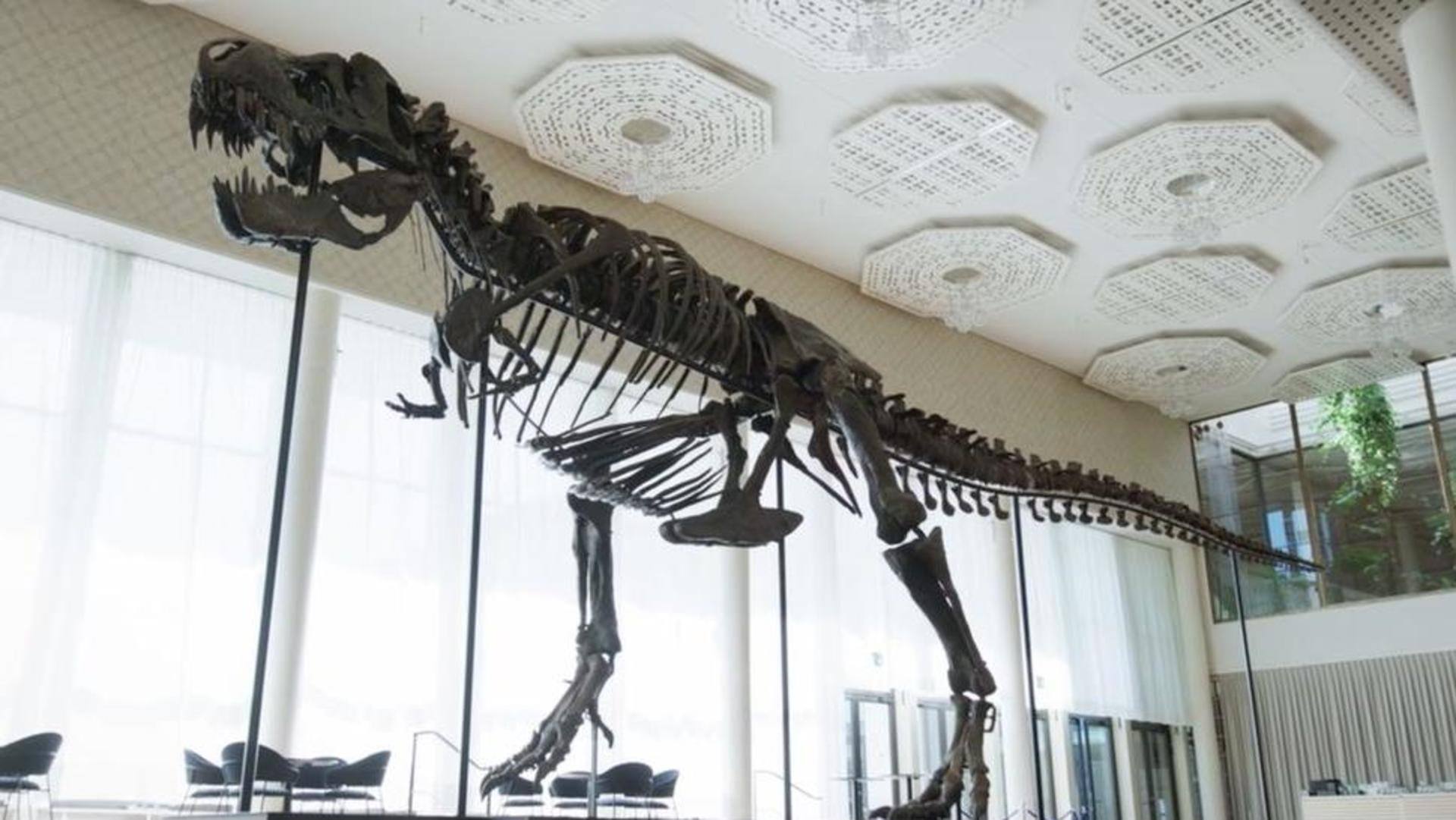
Someone just bought a dinosaur skeleton for Rs. 50 crore
What's the story
A 67 million-year-old dinosaur skeleton, of a Tyrannosaurus rex, has been purchased for CHF 5.55 million (nearly Rs. 50 crore) by a private individual in Europe. Measuring roughly 38 feet long and about 13 feet tall, the T. rex specimen is named "293 Trinity." Interestingly, the auctioned piece is said to be "one of the most spectacular T. rex skeletons in existence."
Context
Why does this story matter?
T. rex skeleton remains have been sold before but this is the first time one has been auctioned in Europe. The rarity at which these auctions take place is what draws the attention of the public to these events. What's even more interesting is that the T. rex skeleton is claimed to be one of the biggest and best specimens in the world.
Buyer
The skeleton was sold by Koller auction house in Zurich
The dinosaur skeleton was sold by Koller auction house in Zurich to a private person whose identity has not been disclosed. The buyer will remain in Europe, said a spokesperson for the auction house. Koller expects the specimen will be put on public display in the future but at this point, it is unclear what the owner intends to do.
Details
The skeleton is made up of 293 individual bones
The 293 Trinity dinosaur skeleton is assembled from three different T. rexes sourced from fossil sites in Montana and Wyoming in the US. The skeleton is composed of 293 individual bones from specimens collected between 2008 and 2013. While the majority of the auctioned dinosaur skeletons are partly composed of casts or replacements, over half of 293 Trinity is made up of real bone.
Information
Trinity 293 has been described as a "special beast"
"There are only 20 or 30 good T. rex skeletons in the world and this is one of the bigger and better ones," said Hans-Jacob Siber, from The Aathal Dinosaur Museum in Switzerland. He described Trinity 293 as a "special beast."
Concern
Some are concerned about dinosaur fossils going into private collections
Some scientists are concerned about the number of dinosaur fossils going into private collections. "What worries me is that these very rare dinosaur skeletons, which are scientifically very valuable and are important for education and public engagement disappear into the vaults of private collectors which means that they are not available for public display," said Steve Brusatte, from Edinburgh University, to BBC News.